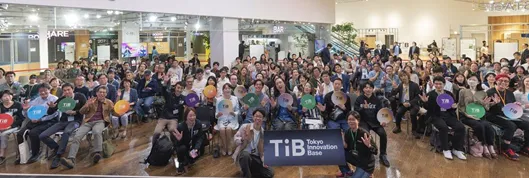PREMIUM MENTORING
JP/EN
A Message to Startups Pioneering the Future
From Audrey Tang
The evolution of AI and other information technologies will drastically change the way we live, as well as society and cities. Startups with advanced technologies and new ideas will drive these transformations.
On November 27, 2024, “TIB Premium Mentoring” was held at Tokyo Innovation Base. This initiative provides mentoring opportunities to promising startups from senior entrepreneurs and managers who are active in their respective fields. At the kick-off session, Audrey Tang, the program’s first mentor, spoke to the many entrepreneurs and students gathered at the event about the expected role of startups and gave examples of successful AI applications in Taiwan.
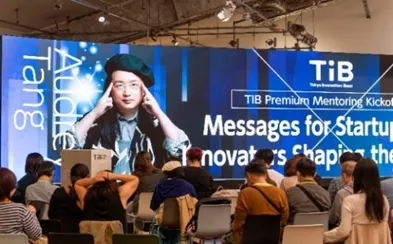
AI: Creating Empathy and Dialogue
Ms. Tang, who co-founded a successful IT company at the age of 16 and was appointed as the youngest cabinet minister (Minister of Digital Development) at 35, emphasized the importance of “plurality,” meaning diversity and coexistence. She said that AI is not just a tool but the key to creating empathy and dialogue.
In 2014, the Taiwanese government’s approval rating had slumped to just 9%, creating deep distrust between citizens and the government. It was said that no matter what the government announced, all 20 million citizens would oppose it.
Against this backdrop, Taiwan introduced an online platform (vTaiwan) for citizens to freely express their opinions and build consensus. In this system, citizens post their opinions on a set agenda and express their agreement or disagreement with those opinions. AI then groups the various opinions to visualize concerns about the agenda and the points they emphasize. The system draws attention to opinions that both sides agree on, leading to consensus-building rather than division. By reflecting the points raised through this system in policies, the gap between the government and citizens has been bridged, contributing to the restoration of trust in the Taiwanese government.
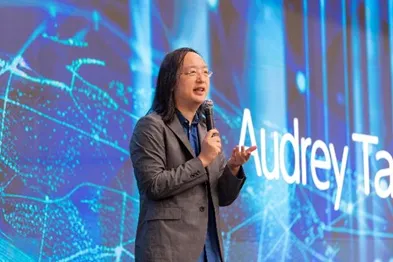
Building Consensus for Introducing Ridesharing and
Combating Online Fraud
Ms. Tang emphasized that designing systems that respect diverse values and generate empathy is crucial for startups addressing social issues. She cited the market entry of Uber in Taiwan as an example. To enable Uber and the taxi industry to coexist, the Taiwanese government explored ways to balance the views of both sides: reducing the impact on existing cab drivers and securing transportation through ridesharing in underpopulated areas. In this case, the system was used to organize citizens’ opinions by focusing on “why they oppose the introduction of Uber,” and stakeholder dialogue was promoted, which cleared the concerns of the parties and made it possible to reach a consensus to legalize the introduction of Uber.
Additionally, the Taiwanese government has been successful in combating fraud. The system sent messages to 200,000 citizens, inviting them to discuss deepfakes and online fraud, which proved effective. By flexibly responding to Internet regulations such as digital signatures, social media fraud has been reduced by 90% in Taiwan.
Ms. Tang explained that the more AI technology is utilized, the better the results. She stated, “Implementing information technology that can aggregate diverse views and values is superior to policymaking by a single politician alone.” She suggested we consider transitioning from an “Internet of Things” to an “Internet of Beings,” from “virtual reality” to “shared reality,” from “user experience” to “human experience.” She added, “Let’s shift our mindset from ‘machine learning’ to ‘collaborative learning’ and value ‘plurality’ (coexistence and collaboration of diverse opinions) while being aware of ‘singularity’ (dramatic change through technological innovation).”
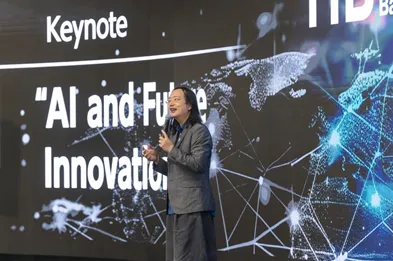
Community-Driven Innovation
In the second half of the kick-off session, Ms. Tang spoke with Ren Ito, co-founder and COO of Sakana AI, a Tokyo-based startup that has grown into a unicorn in just one year with a new approach that does not require huge development costs. Sakana AI developed a GPT-3.5 equivalent model within three months by combining billions of open-source language models, and it cost only US$24.
Mr. Ito agreed with Ms. Tang’s idea of community-driven innovation, and the two discussed the need to develop an AI ecosystem rooted in Asian culture and regional characteristics. She said: “It is important to develop a unique AI ecosystem that is not one-size-fits-all, but one that reflects the unique culture of each region and can respond to diverse needs. These ideas will be valuable for startups looking to make their mark in the field of AI and digital technology.”
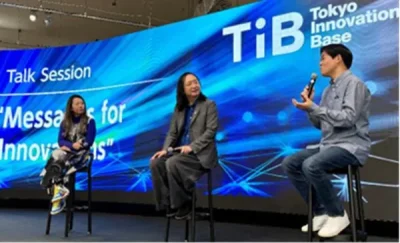
How to Attract the Best Talent
At the end of the session, participants asked many questions. In response to a question from a startup on how to attract talent, Mr. Ito said: “It is important to share a vision and present meaningful challenges. Our commitment to open-source development and solving society’s problems is shared by many people who want to work together.” Audrey added, “There are many experienced entrepreneurs in the senior generation who value seeing how their work contributes to society.”
In response to a student’s question on managing international teams, Ms. Tang shared her experience in team building with members from different countries and time zones. She emphasized sharing experiences, saying, “When holding a web conference, for example, it is important to share reality over distance, such as over the same beer.” Mr. Ito agreed and said, “We should continue trial and error to understand each other.”
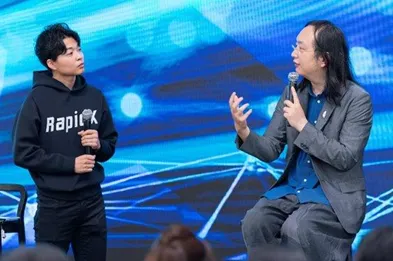
Expectations for the Evolution of AI and Challenges for Startups
Both speakers believe that the next phase of AI development will hinge on the introduction of “agent-based models” (computer models for simulating interactions between individuals and organizations) and “community alignment” (community coordination and collaboration). Ms. Tang said, “AI must implement cultural values and community desires.” Mr. Ito added, “AI development has just begun. We aim to build a sustainable ecosystem beyond existing technologies. The healthcare system, school education, logistics, election system, and public safety are all directly related to the realization of a better society.”
In closing, Ms. Tang said, “With the power of open innovation and open source, let’s build a foundation for the future. I look forward to seeing startups take on the challenge so that we can be ‘good ancestors’ and pass on a sustainable society to the next generation.”
